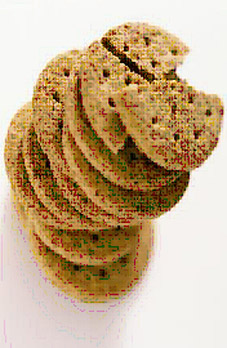
Fortification plays a vital role in delivering the vast array of nutrients that would normally be derived from each food group into convenient snacks and meals
OVER the course of a lifetime in this industry, if there is one point that I try to make over and over again to a food or beverage manufacturer, it is the fact that taste is the number one determining factor for a product's success. A manufacturer can claim to offer the most nutritiously enhanced product in their specific category but if it doesn抰 taste great, they can forget about its longevity. And the same stands true for products that are certified Halal. While many things are clearly Halal or clearly haram, which means unlawful or prohibited, there are some things that are not clear. These items are considered questionable or suspect and more information is needed to categorize them as Halal or haram. Such items are often referred to as mashbooh, which means doubtful or questionable. For instance, foods containing ingredients such as gelatin, enzymes, emulsifiers, etc. are mashbooh because the origin of these ingredients is not known. For a premix formulator to fortify a product that will need to be Halal certified, the nutrients that are sourced for inclusion in the premix need to be Halal certified and the manufacturing conditions must adhere to specific Islamic parameters dealing with hygiene, dietary regulation, raw material processing and premix packaging as set forth by various Halal certification authorities from around the world. While all of this certification can seem overwhelming, the payoff for manufacturers can be well worth their time. According to IslamicPopulation.com, Muslims worldwide currently number 1.5 billion, making the Halal market potentially very lucrative for manufacturers. And, though the global market for Halal food has never been measured, industry estimates of its value range from $150 billion to $500 billion.Halal ?An Appeal that Reaches Outside of the Muslim Community
Marketing a product that has Halal certification can be a crucial component to a manufacturer's success. That certification means that the product, whether food or beverage, contains the finest and purest ingredients available, and that it is of superior quality. Non-Muslim diet-conscious consumers are increasingly incorporating Halal products into their diets specifically for this reason. Today's consumer unfortunately does not leave a lot of time for a well-balanced diet that incorporates the necessary servings of vegetables, fruits, meats/fish/poultry, dairy and grains. This is where fortification plays a vital role in delivering the vast array of nutrients that would normally be derived from each food group. With the technology that is available to us today, numerous types of food and beverage products offer fortification opportunities that can conveniently fit into a Halal diet. The key is to successfully deliver a nutrient premix blend without negatively affecting consumer expectations surrounding issues such as taste, texture (mouth feel) and appearance. Blending, testing and processing techniques can make the difference between producing a reliable, high quality, homogeneous, shelf-stable nutrient premix and an inferior one that may cause poor consumer confidence, potential regulatory issues or recall situations. Food and beverage manufacturers worldwide recognize that delivering nutrient value can open market opportunities and drive sales. Competitive edge can be won through factors including functional ingredient load, health claims and product customization for specific demographics such as the Halal consumer and health conditions. The key to a manufacturers?ability to meet the promise of their nutritional labels and health claims is the stability of the nutrients in their food or beverage matriJunior













